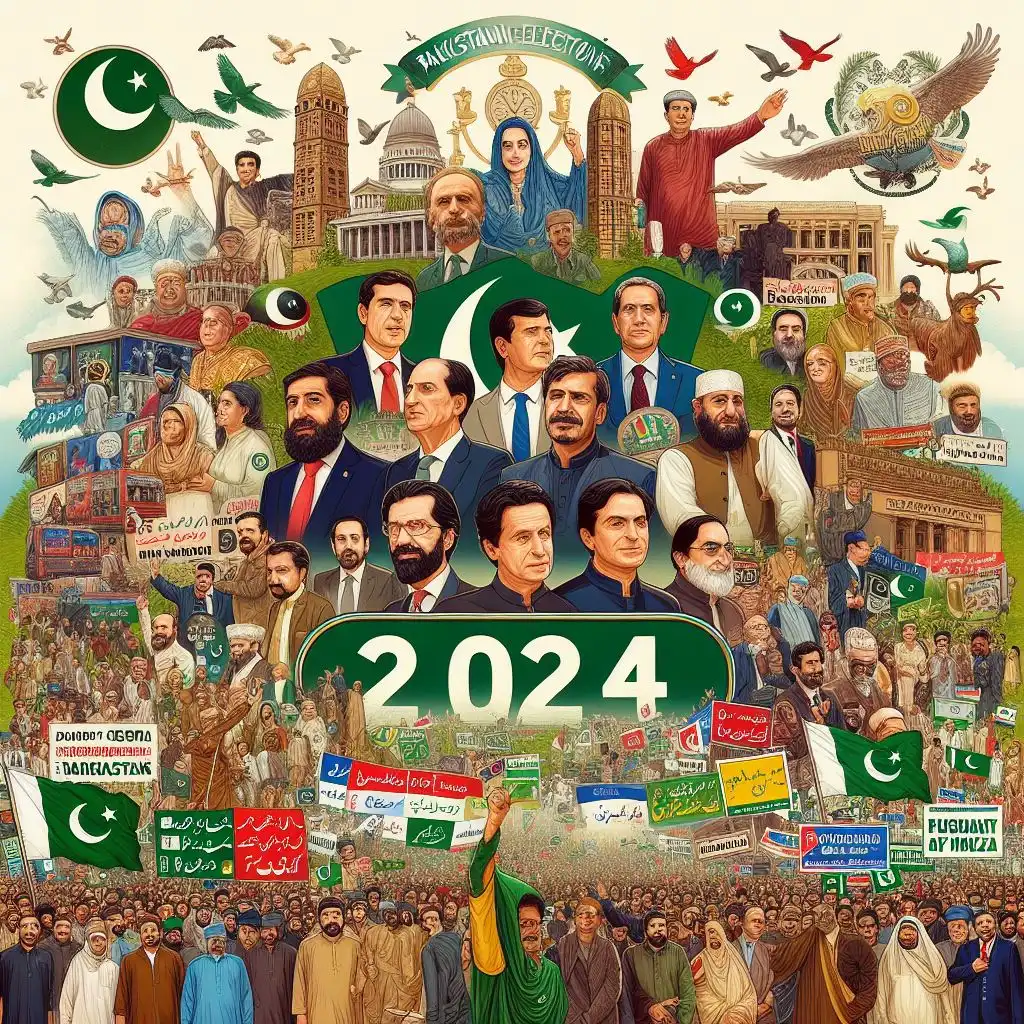Pakistan stands at a critical juncture as it gears up for the upcoming general elections scheduled for February 8th, 2024. With over 128 million registered voters and nearly 18,000 candidates vying for 336 National Assembly seats and 749 Provincial Assembly seats, this pivotal event promises to shape the nation’s trajectory for years to come. Let’s delve into the key aspects of this complex democratic exercise:
Major Contenders and Their Agendas:
- Pakistan Tehreek-e-Insaf (PTI): Led by the charismatic former Prime Minister Imran Khan, the PTI is campaigning on an anti-corruption platform, vowing to eradicate “imported governance” and establish true democracy. The party faces challenges due to Khan’s disqualification from contesting elections and internal rifts.
- Pakistan Muslim League-Nawaz (PML-N): Headed by former Prime Minister Nawaz Sharif, the PML-N champions economic development and promises stability with experienced leadership. However, questions regarding corruption allegations and Sharif’s health remain key concerns.
- Pakistan Peoples Party (PPP): Led by Bilawal Bhutto-Zardari, the PPP focuses on social justice and inclusivity, particularly for marginalized communities. They aim to capitalize on their stronghold in Sindh province and build alliances with other parties.
- Other Prominent Players: Smaller parties like the Jamaat-e-Islami and the Awami National Party could play a crucial role in forming coalitions, especially in swing provinces. Additionally, independent candidates can add an element of unpredictability to the outcome.
Key Issues Shaping the Political Landscape:
- Economy: Rising inflation, unemployment, and energy shortages are major concerns for voters. Each party proposes different economic policies, ranging from Khan’s focus on self-reliance to PML-N’s emphasis on foreign investment.
- National Security: Geopolitical tensions with India and Afghanistan, along with internal threats like terrorism and extremism, demand robust security measures. Parties differ in their approaches to foreign policy and counterterrorism strategies.
- Governance and Rule of Law: Ensuring transparency, accountability, and upholding the rule of law are critical issues. Voters seek leaders who can tackle corruption and strengthen democratic institutions.
- Climate Change: Pakistan is highly vulnerable to climate change effects like floods and droughts. Parties’ plans for mitigating these challenges and ensuring environmental sustainability will be closely scrutinized.
Uncertainties and Potential Challenges:
- Electoral Integrity: Concerns regarding pre-poll rigging, manipulation of voter lists, and misuse of state resources could cast a shadow on the election’s legitimacy. Ensuring a free and fair electoral process is crucial for public trust.
- Political Polarization: Deep divisions between major parties and their supporters can lead to post-election instability and impede effective governance. Finding common ground and fostering dialogue will be necessary for national unity.
- Role of the Military: The Pakistani military’s influence on the political landscape remains a major concern. Ensuring civilian control over the military and its neutrality in the elections is essential for democratic consolidation.
Looking Beyond the Polling Booths:
Regardless of the election results, Pakistan’s journey towards a stable and prosperous future requires more than just changing faces in government. Several long-term challenges demand sustained efforts:
- Strengthening democratic institutions: Fostering a culture of tolerance, dialogue, and respect for diverse viewpoints is essential for a vibrant democracy.
- Investing in human development: Improving education, healthcare, and social services is crucial for empowering citizens and promoting inclusive growth.
- Empowering youth: Engaging the young population in the political process and harnessing their energy for positive change is vital for a brighter future.
- Promoting regional cooperation: Building stronger partnerships with neighboring countries can contribute to peace, stability, and economic prosperity in the region.
The 2024 Pakistani elections are not just about choosing leaders; they represent a critical moment for the nation to define its future trajectory. Understanding the complexities of the political landscape, the aspirations of the people, and the long-term challenges will be crucial for navigating this momentous crossroads and building a brighter tomorrow for Pakistan.
